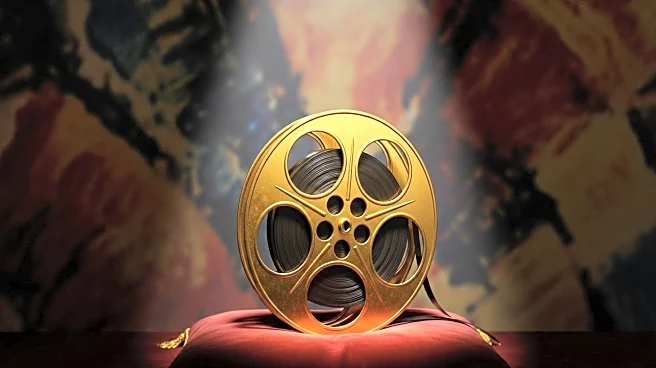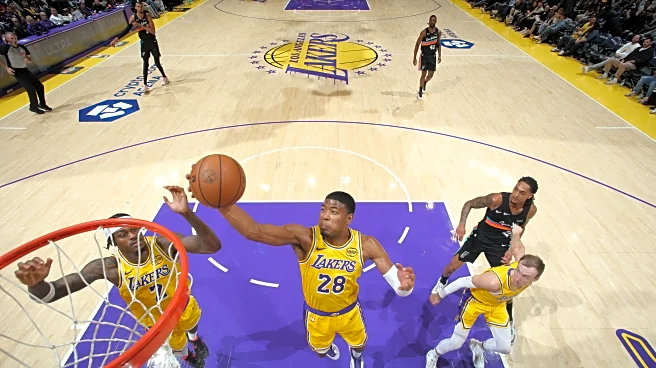What's Happening?
The Venice Film Festival recently hosted the world premiere of Julian Schnabel's film 'In the Hand of Dante,' adapted from Nick Tosches' novel. The film features a star-studded cast including Oscar Isaac, Jason Momoa, Franco Nero, and others. The narrative follows author Nick Tosches, played by Isaac, who is drawn into a dangerous quest to authenticate a manuscript believed to be Dante's 'The Divine Comedy.' The plot intertwines the lives of Nick and Dante across centuries, exploring themes of love, beauty, and the divine. The premiere was notable for the absence of Gal Gadot and Gerard Butler, following calls from Venice4Palestine to rescind their invitations due to their support for Israel.
Why It's Important?
The premiere of 'In the Hand of Dante' at the Venice Film Festival highlights the intersection of art and politics. The film's narrative, which delves into historical and philosophical themes, is set against a backdrop of contemporary political tensions. The absence of Gadot and Butler underscores the ongoing debate over cultural events and political affiliations, reflecting broader societal divisions. This situation may influence future festival invitations and the participation of artists with controversial political stances, impacting the cultural landscape and the dialogue around art and politics.
What's Next?
The political controversy surrounding the film's premiere may lead to further discussions about the role of political beliefs in cultural events. Stakeholders in the film industry might reassess their policies regarding artist participation in festivals, potentially affecting future programming and artist collaborations. Additionally, the film's reception and its exploration of historical themes could spark renewed interest in literary adaptations and the blending of historical narratives with contemporary issues.
Beyond the Headlines
The film's exploration of Dante's legacy and the quest for artistic perfection raises questions about the timeless nature of art and its impact on human lives. Schnabel's work suggests that art transcends temporal boundaries, offering a unique perspective on the pursuit of beauty and truth. This philosophical dimension may resonate with audiences, prompting reflections on the role of art in shaping cultural and personal identities.










